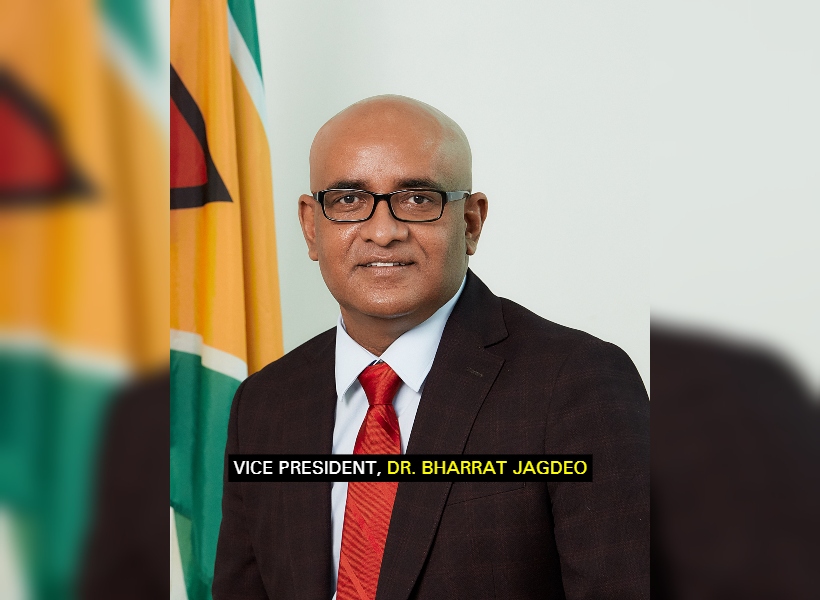The Government of Guyana (GoG) remains optimistic that the groups awarded oil blocks in its inaugural auction will overcome financial hurdles, and raise the necessary funds.
Guyana’s Vice President and General Secretary of the People’s Progressive Party/Civic (PPP/C), Bharrat Jagdeo, on Thursday said during his press conference, “So we [are] still working with the companies, who knows maybe they may be able to raise the financing.”
Last year, 14 blocks were offered during the auction, and eight attracted interests from both local and international companies. However, to date, only the consortium led by TotalEnergies in partnership with Petronas and Qatar Energy has moved onto the next stage.
As part of its strategy to maximize benefits from the oil blocks, the government under the new Production Sharing Agreement (PSA) set a US$20 million signature bonus for deep-water blocks and US$10 million for shallow-water blocks. Additionally, there is a fixed 10% royalty rate, a 10% corporate tax, and a lowered cost recovery ceiling of 65%, down from the previous 75%.
Recently, Jagdeo had disclosed that several groups awarded blocks have encountered challenges in finding suitable partners or raising the funds required to proceed. While he had acknowledged these obstacles, he said that failure to secure funding might force the government to abandon the process. However, at his last press briefing, Jagdeo underscored that there is no immediate rush to conclude the auction process. “We do have time on our side,” he said.
Jagdeo also disclosed that government has embarked on the bidding process to have a 3D seismic study conducted offshore to make the blocks more attractive. A 3D seismic study is a key tool used in oil and gas exploration to create a three-dimensional image of what lies beneath the Earth’s surface. This makes it easier to pinpoint potential locations of oil and gas reserves. A total of eight firms have submitted bids and are being prequalified to do this. It was explained that with data being available on the unallocated areas it will ensure the bidders make more informed decisions.
Moreover, the Vice President reiterated that there continues to be calls for government to reduce the fiscal conditions of the PSA, which have been labelled as “onerous.”
“We don’t share that view,” he said. “[Guyana is] going to be producing 1.3 million barrels a day soon. So, we are getting to be like a fairly mature jurisdiction, and so, we doubt that we are going to change the fiscal conditions, but we are prepared to be a bit more flexible on some of the other positions that we put in place,” Jagdeo underscored.
Furthermore, in response to queries about a timeline for a potential second auction, Jagdeo outlined a cautious approach, citing the need to consult with international advisors familiar with global market conditions. He underscored the competitive nature of the petroleum sector, with Guyana vying for investment against numerous other countries.













